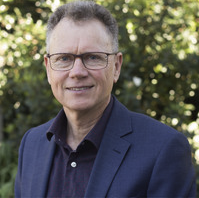A Contented Life
What makes for a contented life?

I’ve been thinking this week about what makes for a contented life.
Contentment can be elusive. If you’re wired somewhat similarly to me, then you have a busyness gene. We say to ourselves we must keep working in order to build peace, justice, and love, and all those other great things. We must keep working to help those worse off than ourselves, to fix the wrongs of society, and to make a better world. We must keep working, and rest only when we need to.
Yet we also know that such busyness means we miss a lot. It’s like we’re on a train, the busyness train. We might even be driving it. We believe the train is going somewhere important. But at the speed we are going we are also missing, or rather just glimpsing, all the little places and people and happenings that we’re rushing past.
We need to get off the train and stop. Then listen to the quiet. And not worry about the train and where its going and all that and all that. Just stop. Then listen. And notice.
That was the first thing I put on my list of the contented life: time to slow down, stop, and then take notice of my surroundings. To notice the colours, the smells, the feel of fabric or wood or water, the tastes of food, and the amazing presence of the people and animals in my life. The beginning of wisdom, and so much more, is stopping, listening, and noticing.
The second thing I listed as part of the contented life was the art of remaining calm when there is good reason not to. For storms of life will come our way. It might be the storm of a loved one in trouble. Or the storm of our own health – physical health, financial health, relational health. Or it might be a stormy visitor thundering a demand. And these storms have an ability to agitate us. They insist that we pay attention to them, and imitate their disquiet.
I’d always admired the gift of those who can remain calm in a storm. Then I discovered that such calm is not a gift of our innate temperament but something that can be learnt, practiced, and taught. It’s a spiritual discipline. It’s a discipline of quietening anxieties, stilling our minds and halting our desire to automatically respond, and then resting in the knowledge that we are anchored in love.
That was the third thing on my contentment list: love.
This will take a little bit to explain so bear with me. I believe that there is this goodness that permeates our planet. A goodness seen in the young shoots that can come forth even, say, after a destructive fire. Or the goodness seen in acts of kindness between humans, or between humans and animals. Or the goodness seen in warm and welcoming smiles. Or the goodness seen in someone who has cared for another over a long period of time. Goodness, lots of goodness, in most places, in most times. More, believe it or not, than all the badness.
When we begin to notice this goodness, we keep on noticing it. We notice it in unexpected places. We notice it in nearly every place. And we not only notice it, we look for it and we add to it. Most of us can’t stop ourselves. We smile back. We copy kindness. We care. We do good, and feel good in doing good. And in so doing we contribute to the ongoing goodness in the world.
Such goodness also produces feelings of deep gratitude. (Gratitude is number four on my contentment list). However, as well as gratitude, this collective permeating goodness that surrounds me also holds me, grounds me, and sends a very strong message – a message that I am loved.My list could keep on going. But these four will do for now:
- stopping, being still, and noticing,
- learning the art of calm,
- seeing the goodness in the world and letting it hold you,
- and gratitude.
They are my cairns, guiding me home to contentment.
Glynn




